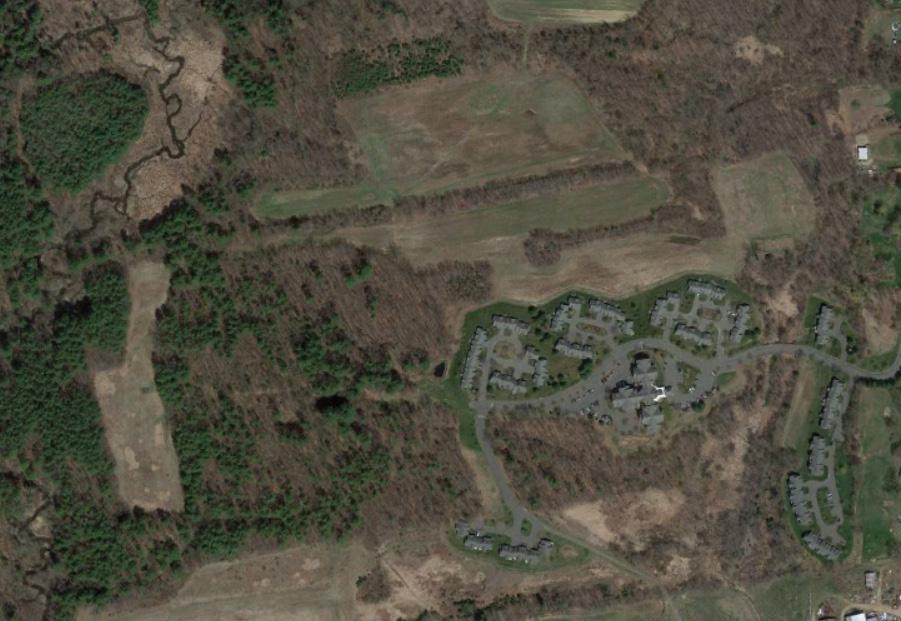
3 minute read
Guiding Principles and Persons
Guiding Principles & Persons
History & Values
Lathrop Retirement Community currently has a north campus and an east campus. This landscape master plan is focused only on the east campus. Lathrop’s east campus began to take root after the Northampton parcel was donated to Lathrop Inc. in 1996. After the purchase of the bordering Easthampton parcel, construction of Lathrop Retirement Community began that same year in July, and residents moved into some of the first townhomes within two years. Until about 2015, Lathrop allowed a farmer to hay the fields that are presently managed as meadows. Agriculture persists on the land surrounding Lathrop’s parcels.
Lathrop Community embraces the Quaker Principles of Equality, Simplicity, Peace, Integrity, and Community. This landscape master plan respects these values through analyses, designs, and final recommendations.
A: 1995

B: 2002
Photo A: Early spring of 1995. All open space in both of Lathrop’s parcels is used for farming. This is the year before the Northampton parcel was donated and Easthampton parcel was purchased.
Photo B: Early spring of 2002. Lathrop Inc. has owned the land for eight years; in that time, one main road, the Inn, and approximately 40 townhomes have been constructed in the largest field.
Photo C: Early spring of 2016. Lathrop has constructed all 61 townhomes that exist at present. There are new roads to the two new townhome clusters of Mulberry, at the southern edge of the property, and Huckleberry, closer to the main road entrance to Lathrop.

C: 2016
Ongoing Efforts
The Land Conservation Committee has completed numerous projects and developed many initiatives for the land management practices at Lathrop. One of their biggest efforts—and successes — is their invasive plant species removal project. So far, members of the committee have removed invasive plants from a contiguous 50 acres, what is now dubbed the “Free 50,” as seen below in light green. Additionally, this group has advocated for decreasing mowing frequency; eliminating chemical pesticides, herbicides, and fertilizers; reducing lawns; and including more native plants in the landscape. They have hired many consultants to assess meadow management, remove invasive plant species, and design portions of the landscape. Furthermore, they have helped residents enjoy Lathrop’s landscape by organizing and leading walks, presentations, bird watching, and conducting trail mapping.
“As a professional ecologist with decades and decades of experience I was amazed with the restoration done by the residents of the Lathrop Community in Easthampton, MA. Not only have they eradicated acres of invasive exotic plants but they have put in place an ecological management plant that will yield excellent results for generations. In all my years of experience this is the best example I have seen of citizen science put into action. These senior citizens have not only talked the talk but walked the walk in making their environment and the Earth’s environment a much better place. I am more than favorably, impressed, I am in awe of what they have accomplished.” - Bill Lattrell, MS, PWS, Restoration Ecologist and Professional Wetland Scientist, Lattrell Ecological Consulting LLC.
MAP KEY
Currently clear of invasive plants
Regularly managed by contractors and residents
Annual work by contractor

Regularly managed by residents only
Priority for future work
GUIDING PRINCIPLES
Lathrop Retirement Community cape Master Plan Lands
Residential area
Strategies for invasive plant removal have included brush hogging, “cut stump” herbicide treatment, hand-pulling, releasing beetles (specifically for purple loostrife), and preventing resurgence by planting more natives.










